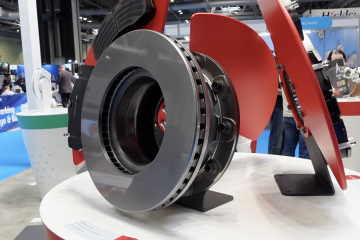New research carried out by Kwik Fit suggests that over a third of drivers (36%) have broken down in their current car – despite the supposed reliability of newer vehicles.
A further 34% have experienced a breakdown in a previous vehicle, meaning that only 30% of drivers have never suffered a failure.
The study for Kwik Fit suggests that car problems will still be fresh in the mind of many drivers, as more than a quarter (26%) of those who broke down in their current car did so in the last six months – some 3.8million drivers. Londoners appear to have the most unreliable cars, with 66% of drivers in the capital having broken down in their current car, almost twice the national average of 36%. Either through good luck, or good car care, the least likely to have broken down in their current car are drivers in the East of England and Wales (21% of drivers in both regions).
As the nation moves back towards more normal travel patterns with easing of lockdown restrictions, the Kwik Fit research provides a timely warning to those commuting by car. Almost a third of drivers (31%) experienced their most recent breakdown on a journey relating to work – either driving to or from work (22%) or travelling as part of their job (9%).
Cost concerns
Kwik Fit’s research revealed that despite almost the exact same proportion of male and female drivers suffering vehicle breakdowns (71% and 70% respectively), men are much more likely to be unconcerned about the potential of vehicle trouble. One in five (20%) said they had no fears about breaking down, compared to 13% of women.
The greatest concern to drivers about breaking down is the cost of repairs, cited by 43% of women and 35% of men. However, the research shows that it is male drivers who should be most concerned about a potential repair bill as on average they paid £304.90 for their most recent repair, nearly £20 more than the £285.40 paid by the average female driver.
As well as being most likely to have suffered a breakdown in their current car, Londoners have paid the highest price for their most recent repair – on average facing a bill of £437.60. This is £100 more than drivers in the second most costly region, the South East (average repair cost £335.10) and almost twice as much as drivers in Wales, the area with the lowest average cost at £221.90.
Wrong focus
When it comes to preventing breakdowns, many drivers were found to be focusing on the wrong parts of the car. Kwik Fit found that the biggest cause of more recent breakdowns was battery failure (17%) – especially an issue with vehicles sitting idle for longer periods due to lockdowns. However, only 4% of those surveyed were concerned about their battery performance.
Conversely, the component most car owners are concerned about are their brakes (15%), yet brake failure was the cause of only 3% of drivers’ most recent breakdowns. While this is laudable, as braking systems are a critical safety feature, the garage chain suggests that motorists could put an equal focus on other vehicle parts, such as batteries.
“It’s clearly vital that drivers keep their brakes in good condition, but this new research bears out what we have seen for many years – that one of the most common causes of motoring headaches is a battery problem,” commented Roger Griggs, communications director at Kwik Fit. “Sometimes batteries will fail out of the blue, but usually there are warning signs in advance, such as a car taking longer to start on a morning. It makes sense for drivers to get their battery checked regularly, that way any problems can be detected before they’re left stranded.
“Although some breakdowns cannot be foreseen, regular maintenance, servicing and health checks can identify potential problems in advance and keep a car running smoothly and safely, as well as avoiding costly bills. As many people start to head out further afield as restrictions ease, we encourage all drivers to ensure their cars are in peak condition after months of little use.”



